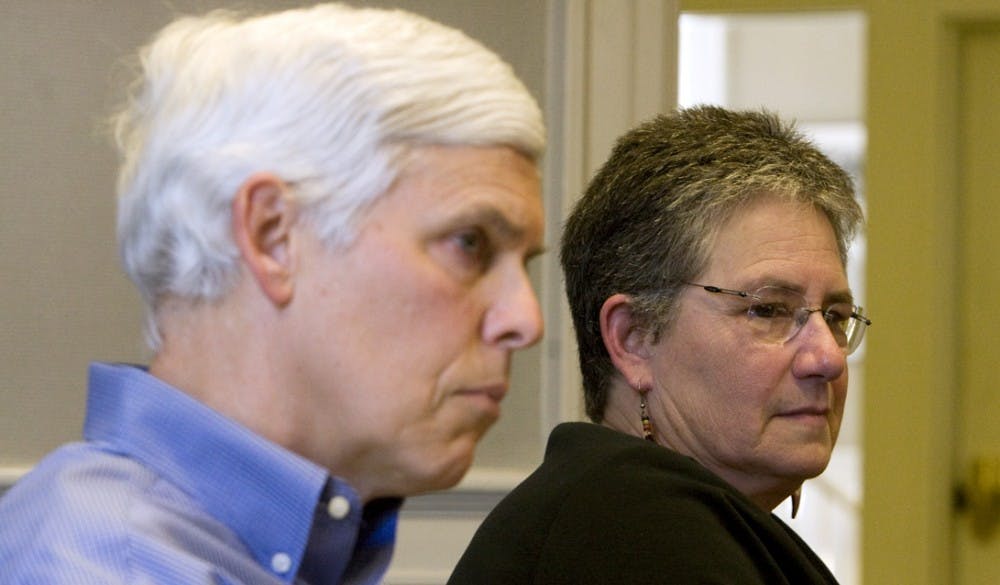Divided into six thematic sections — academic experiences, faculty affairs, interdisciplinarity, diversity, real-world scholarship and global education — the plan tempers expansive vision statements and novel proposals with the stark economic difficulties that have plagued the University, the state and the country during the last two years.
“We’re acutely aware of the situation the University is in,” said Bill Andrews, senior associate dean of the college of arts and sciences and co-chairman of the academic plan steering committee. “To simply write a plan that says, ‘We want, we want, we want’ would be irresponsible.”
A proposal for courses enrolling hundreds of students takes this responsibility to heart.
With an eye on steadily-increasing enrollment rates at the University, these courses would focus on presenting expansive thematic concepts — hunger, poverty and global access to water among the suggested topics — to large sections of freshmen in a format that the plan’s writers say they hope will become a mainstay of undergraduate academic life.
“Just because it’s a big course doesn’t mean it can’t be a blockbuster,” Estroff said.
Other elements of the plan are less direct in their proposals.
Various sections call for improved faculty health care and childcare benefits, strengthened interdisciplinary collaboration and an expanded focus on global education, among other suggestions.
“This is about making things better,” said Executive Vice Chancellor and Provost Bruce Carney, whose office is directly responsible for the plan’s implementation.
Looking for input
The committee has already begun soliciting suggestions from major University stakeholders.
Meetings with the chancellor’s advisory committee, the faculty executive committee, a collection of health sciences deans and the senior associate deans of the College of Arts and Sciences have provided the committee with what members said is invaluable critique on the language and content of the plan.
January meetings with students are planned, said David Bevevino, the academic plan’s administrative assistant.
To get the day's news and headlines in your inbox each morning, sign up for our email newsletters.
Monday, administrators in the College debated the nuances of the plan’s language.
“There’s a balance of the general and the specific,” said Bobbi Owen, senior associate dean of undergraduate education, pointing to a section promoting direct investment in the Center for Student Success and Academic Counseling as a way to increase undergraduate student retention. “How general or how specific are you intending to be?”
Karen Gil, dean of the College, questioned the lack of faculty salary proposals in the plan.
“I wouldn’t forget salary,” Gil said, in case state funding changes. “We don’t want to forget that possible ‘if.’”
The items proposed for faculty — improved health care, a reinstated spousal hiring program, allocation of parking spaces and provision of health care among them — are meant to instead improve the University image as a positive workplace, Estroff said, with the understanding that salary increases are always a hopeful possibility.
“We meant this to be a clear statement of what we think is necessary to maintain the stature of this faculty,” Estroff said. “I’d like to see the (UNC-system) Board of Governors struggle with this.”
Above all, the plan is meant to be positive, despite its sometimes gloomy language.
“The plan is honest and forthright,” Andrews said.
Contact the University Editor at udesk@unc.edu.



